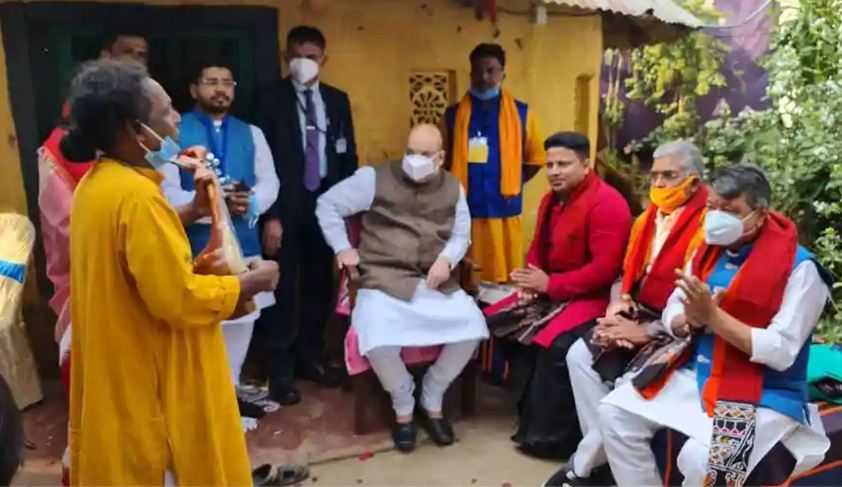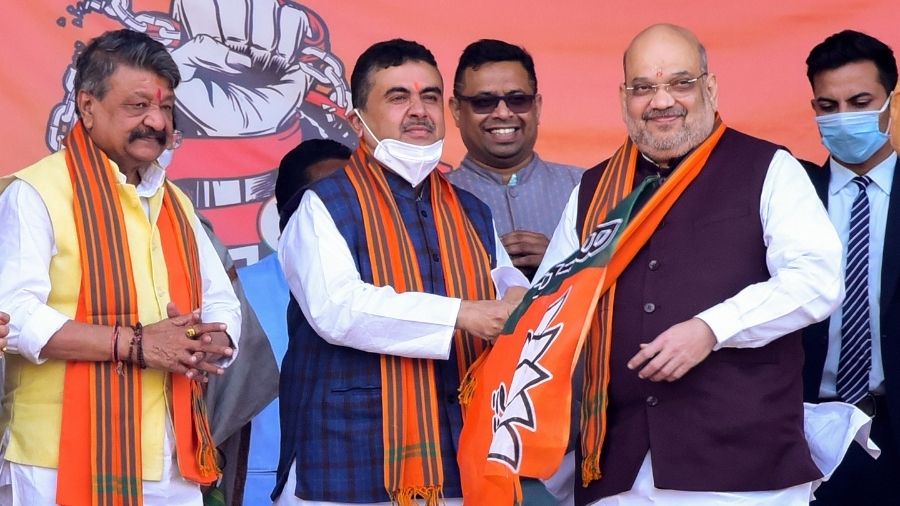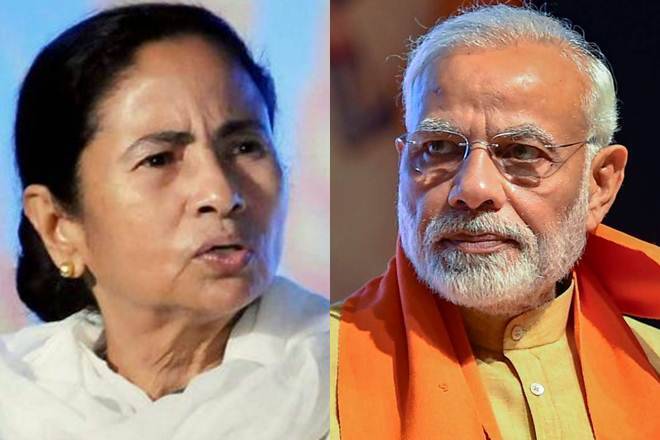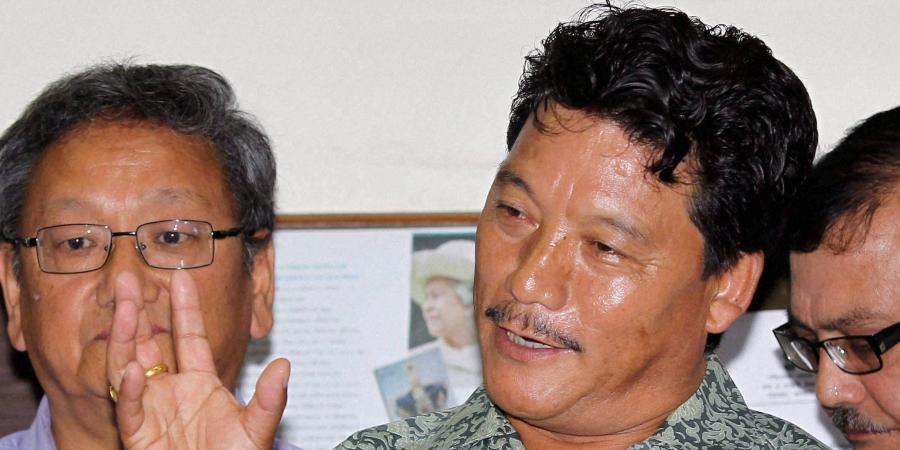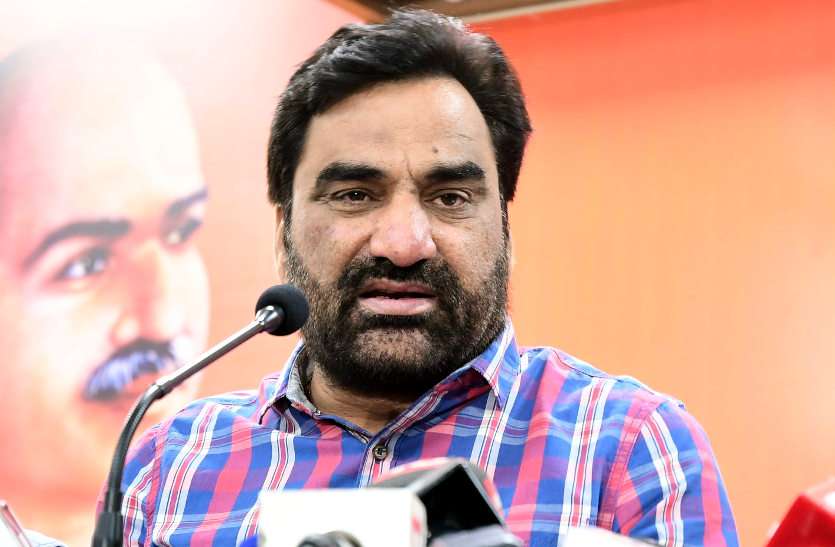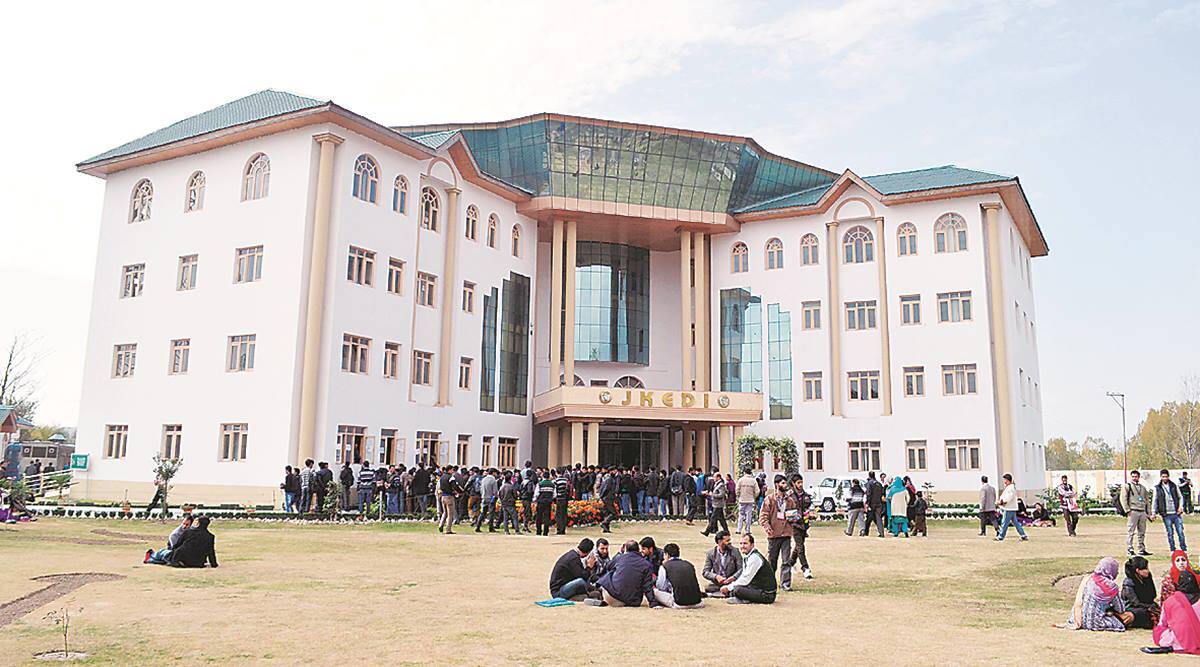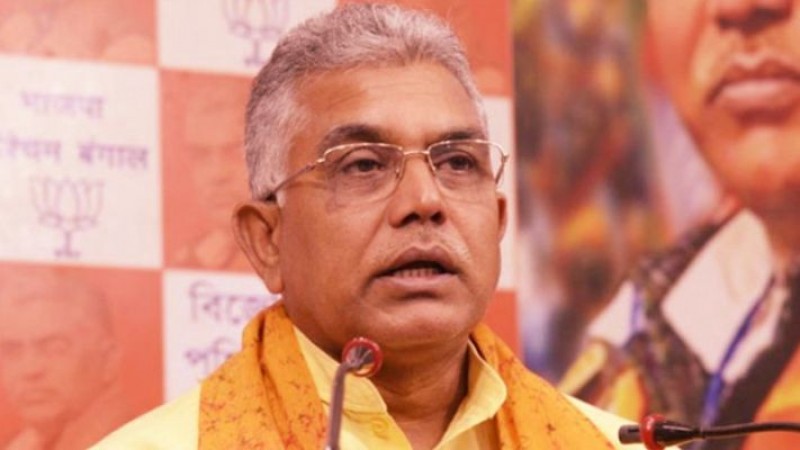Days after the home minster Amit Shah had lunch at his humble home at Bolpur in West Bengal’s Birbhum district, folk singer Basudeb Das Baul has been caught in a tug of war between the ruling Trinamool Congress (TMC) and the Bharatiya Janata Party (BJP).
Shah, who was on a two-day tour of West Bengal, took a chopper ride to Bolpur on December 20 to visit Visva Bharati, the state’s only Central university set up by Rabindranath Tagore and also led a BJP rally. In between, the two programmes, Shah had home-cooked lunch at the singer’s home and also enjoyed his music.
Also see: Trilateral fight in West Bengal election 2021
On Tuesday evening, Das was spotted at the office of the TMC district president Anubrata Mondal. Das complained before the local media that he was not given an opportunity to talk to Shah and seek a job or higher education facilities for his daughter.
“After Shah left, nobody from the BJP bothered to talk to me although they came to me with the request to host the lunch. I did all the shopping. They only bought the sweets served that day,” said Das. “I am under no pressure from the TMC. I came to Mondal voluntarily,” he added. This shows that BJP only comes in to fuel its political agenda while TMC atleast cares for the people in terms of welfare.
Also see: Battleground of Bengal election 2021
“I have told the education cell of our party to ensure that the singer’s daughter gets admission to the bachelor of education course. Shah’s visit to his home was nothing but a drama,” said Mondal.
The BJP jumped into the fray without wasting time. Anupam Hazra, who was the TMC’s Lok Sabha member from Bolpur before joining the BJP in 2019, posted a note on social media along with his photograph with Das. “How come nobody bothered to inquire about this family in 10 years? After Shah visited their home, everybody is suddenly showing concern,” said Hazra who had accompanied Shah. Das is the third person in Bengal who got caught in political crossfire for playing host to Shah.
On November 5, Shah had lunch at the home of Bibhishan Hansda, a member of the tribal community at Chaturdihi village in Bankura district. A day later, chief minister Mamata Banerjee alleged in public that the food was cooked by a Brahmin brought from outside. She also alleged during the same speech that the food was brought from a “five-star hotel”. TMC’s top leaders had even accused Shah of playing caste politics.
Leaders from the TMC and the BJP, as well as officers from the district administration, called on Hansda with the offer to get the best treatment for his teenage daughter Rachana who is suffering from diabetes.
TMC leaders also claimed that Hansda, a marginal farmer, had always been a party supporter but the tribal man claimed to be an apolitical person with no connection with either of the parties. “I am not part of any organization. If anyone takes pity and offers to help I will accept it but it should not be part of politics,” Hansda had said last month.
Significantly, when Shah was having lunch at Hansda’s home, the TMC government had made a surprise move at Naxalbari in Darjeeling district.
Gita Mahali, the poor tribal woman who had played host to Shah and cooked lunch for him during a similar visit in April 2017, was appointed as special home guard at Naxalbari police station. She was given an appointment letter. Ranjan Sarkar, the TMC district president said that the government came forward as the BJP did nothing for the Mahalis in three years. The chief minister also announced that the government will form separate organizations to look after the welfare of backward caste communities.
Referring to Shah’s visit to the folk singer’s home in Bolpur, education minister Partha Chatterjee on Wednesday said, “Shah heard his song but did not listen to his man ki baat. Only Mamata Banerjee is concerned about the people of Bengal.”
The folk singer said that he will be present at the TMC roadshow that the chief minister will lead in Bolpur town on December 29. It will start from the Dakbungalow Road intersection from where Shah’s roadshow was flagged off on Sunday.


